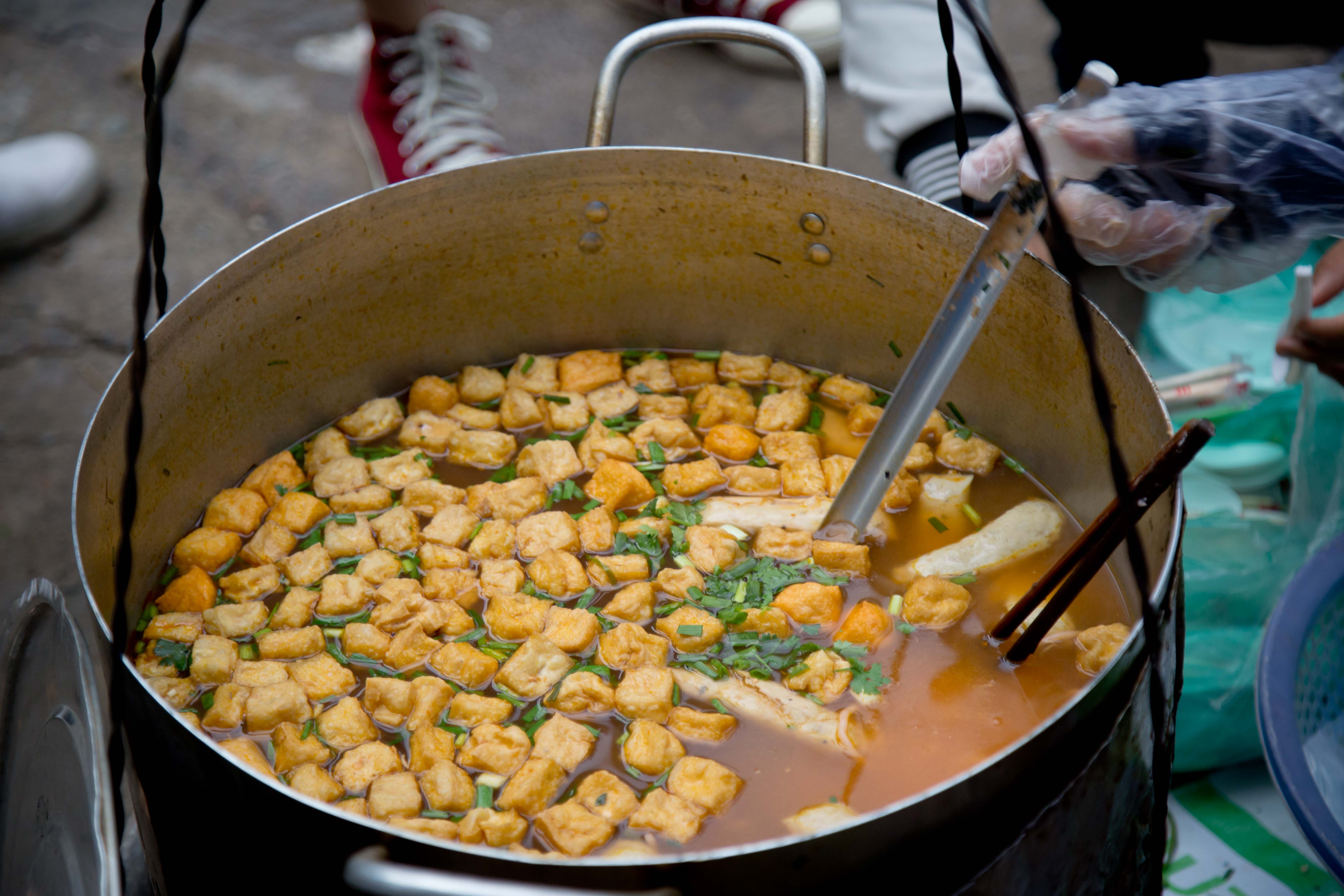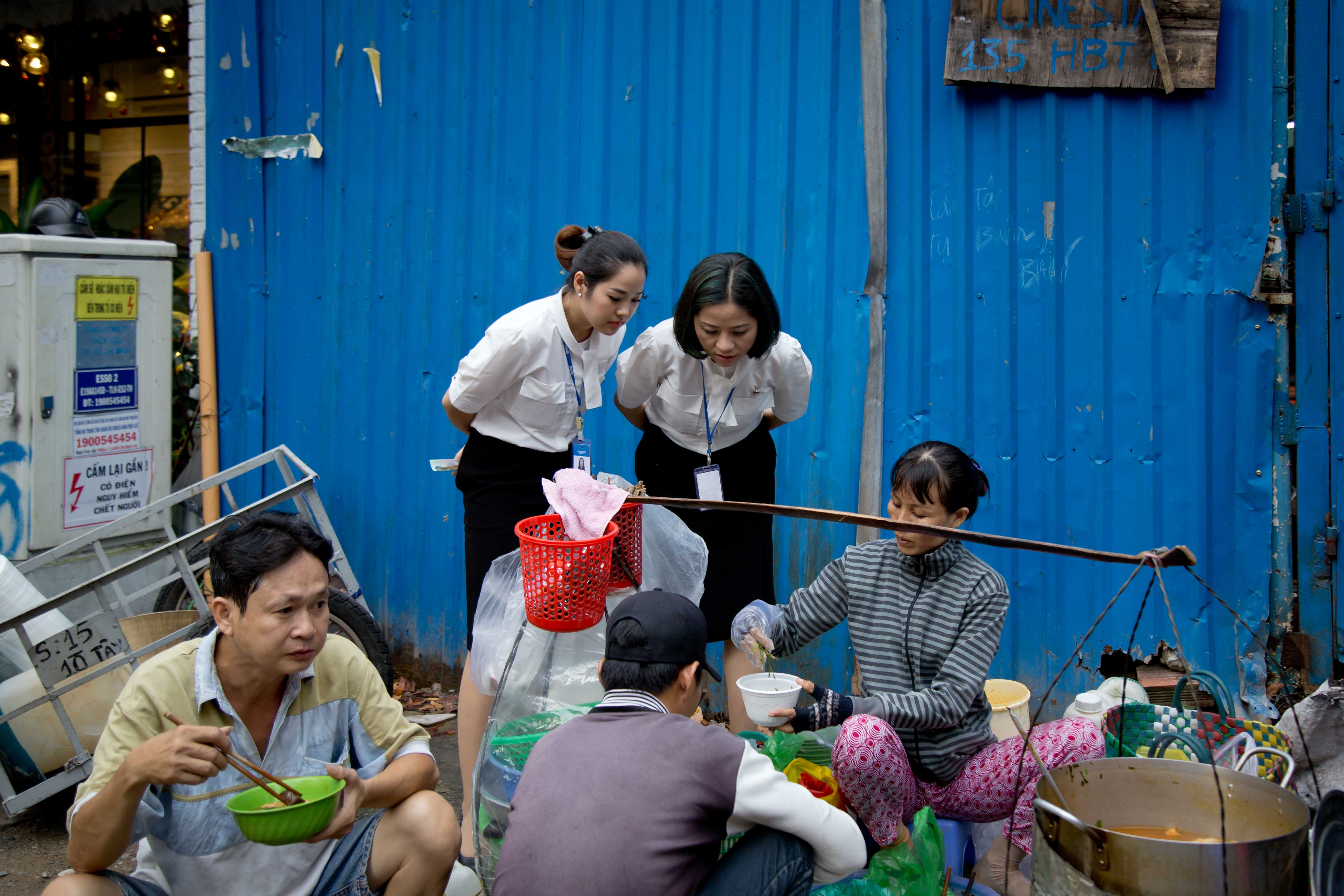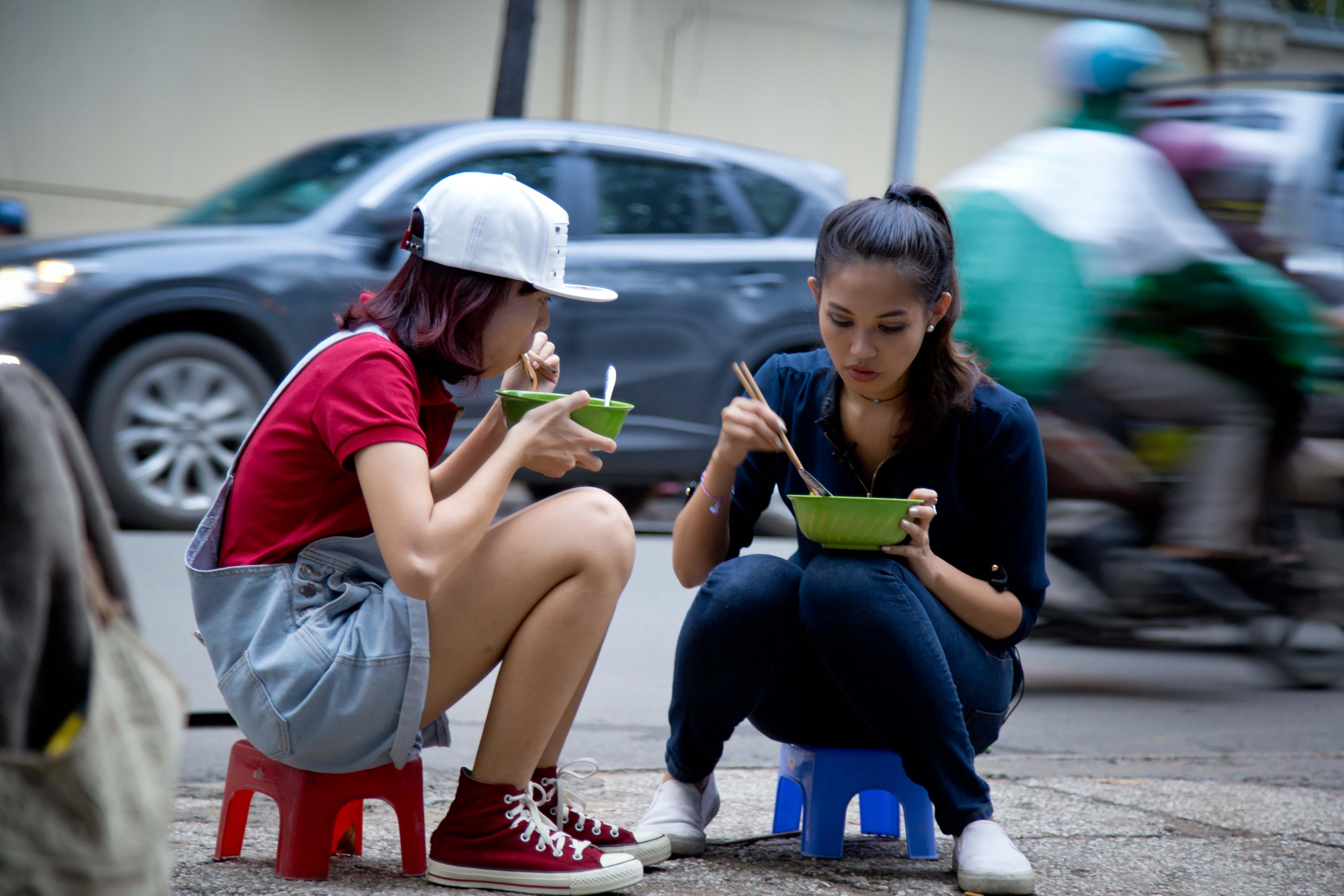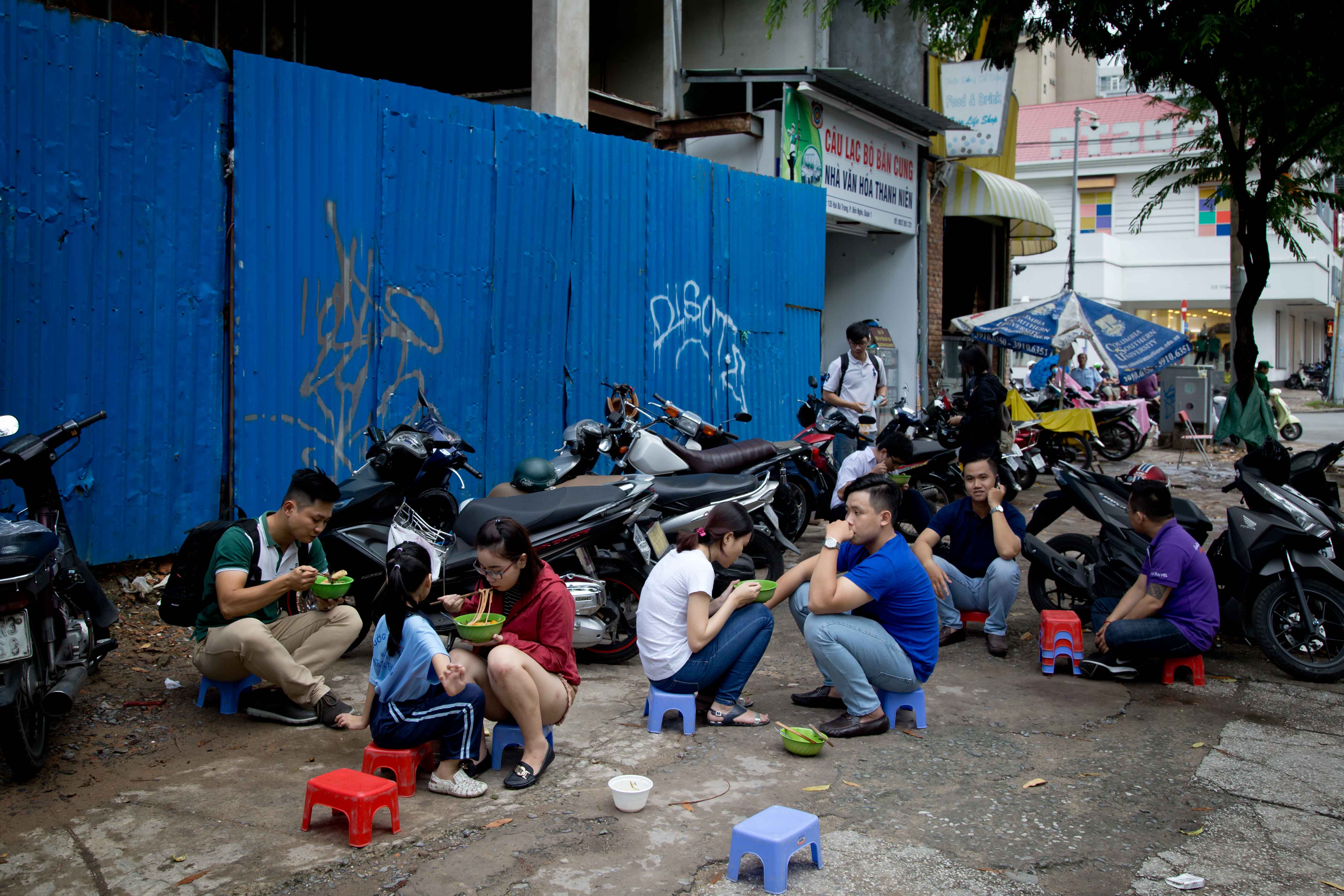Contents
Another Famous Noodle Dish of South Vietnam
Bun do, pronounced boon-daw (like the word “saw”), is savory beyond compare. Every ingredient in the dish adds body to an already luscious broth flavored with a touch of tamarind sauce and chili paste. Handfuls of boiled morning glory, chunks of congealed blood, eggs scrambled with crab meat, scoops of stewed tomatoes, hefty blocks of tofu, and a bundle of rice vermicelli noodles, called bun, pack a mighty punch of flavor. The soup is then garnished with a log of Vietnamese sausage known as cha. Order two if you’re feeling glutinous and don’t mind paying extra, but I wouldn’t blame you considering it is the most balanced version of cha I have ever tasted in Saigon. The murky mauve splotch dab smack in your bowl is none other than mam tom, fermented shrimp paste that has a rancid yet rich flavor obsessed about by many in this region. Stir the bowl well to evenly distribute the flavors.

Most people mistake bun do with bun rieu, another Northern noodle dish, which is an easy error since the broth of both soups is made from pureed river crab meat. The only major difference between the two dishes is the heightened acidity of bun rieu from the addition of more tomatoes and sometimes tamarind sauce to give it an extra kick.
The broth used for bun do is purely from crab meat and tends to be more mellow rather than sour. The color of the broth is more a reflection of the flavor preferences of each region. In the south, a pinch of annatto powder is added to the stew as natural food coloring and an aroma enhancer, deepening the broth’s color into that reddish hue that gave bun do its “red noodle” nickname. Bun rieu also uses of flash-fried morning glory, which makes a bowl of bun rieu strikingly more textured compared to that of bun do.

Recommended Place for Bun Do in Saigon
Ms. Le’s Delicious Shoulder Pole
In an area located behind Diamond Plaza, around the corner from Nguyen Van Chiem or Nguyen Thi Minh Khai Street depending on what route you’ve taken, is Ms. Le’s famous bun do spot.
On a sidewalk on Hai Ba Trung, she unburdens herself of her carrying pole at approximately 4 PM every afternoon and begins serving her soup to loyal customers shortly thereafter. This is not a fixed address. In the morning starting at 10 AM, she feeds a hungover crowd of club-goers behind Lush Nightclub. This operation goes on until 3:30 PM where she then travels with her carrying pole and two heavy vats of soup to the Hai Ba Trung location. The afternoon shift runs from 4 to 6 PM in the evening.
The second location, where Van brought us, is located in Saigon’s financial district bringing in a number of office professionals looking for cheap lunch or dinner. During lunch hours, there’s a stall selling sugarcane juice but you’re out of luck come dinner time if you’re thirsty as there are no mobile beverage stations nearby.

…And the Unique Experiences from Her Mobile Spot
When Van started visiting this spot two years ago, Ms. Le used to sell a few blocks down from this current location but because of the rapid industrialization happening in this neighborhood, her spot has shifted more and more north up the sidewalk. Van’s affinity for bun noodles brought her to this place, where she enjoys making bypassers jealous and hungry as she leisurely slurps her bowl of noodles.
The busy street scene might be off-putting to some, but Van says its all part of the experience. I can see what she means. Sitting on the sidewalk with the roar of engines at ear’s length is quite possibly one of the most surreal dining experiences I’ve had in Saigon thus far. There are no tables and the chairs are so low that if I had knee problems, I probably would not have been able to get up without assistance.
The small chairs are not without cause. 78% of street food vendors in Saigon are billed to be operating illegally, according to The Guardian. The street vendor hierarchy is divided into three tiers. Ms. Le exists in the third tier of illegal street vendors: those who are hypermobile as to evade being caught by the police. It’s a sad affair but in the world of Saigon street eating, it is an everyday reality.
More Facts and Tips

This type of streetside eating is as basic as you can get so if you are not accustomed to eating without a table (don’t feel bad if balancing a bowl of hot soup while wielding chopsticks is a skill you don’t have) or if you have bad knees, this might not be the place for you. However, if you love the hustle and bustle of Saigon’s streets and want to rub some shoulders with the locals, then by all means, stop on by. Just don’t forget to BYOB —bring your own drinks—if you’re visiting in the evening as there’s nowhere close to order drinks unless you want to splurge on some fancy tea at the Pata Chou Bakery next door.
Let us know what you think after you try it!
More information:
Dish’s name: Bun do (Literally translate into Red Noodle)
Price: 15,000 VND/bowl
Opening time: from 10:30 AM to 6 PM
Address: Behind Diamond Plaza, at the T-junction of Hai Ba Trung Street and Nguyen Van Chiem Street
Read more: Banh Khot: The Tastiest Street Food in Saigon
Enjoyed this article and want more? For fun tips on what to do, see and eat in Vietnam, visit us at 4u Trip Blog.
